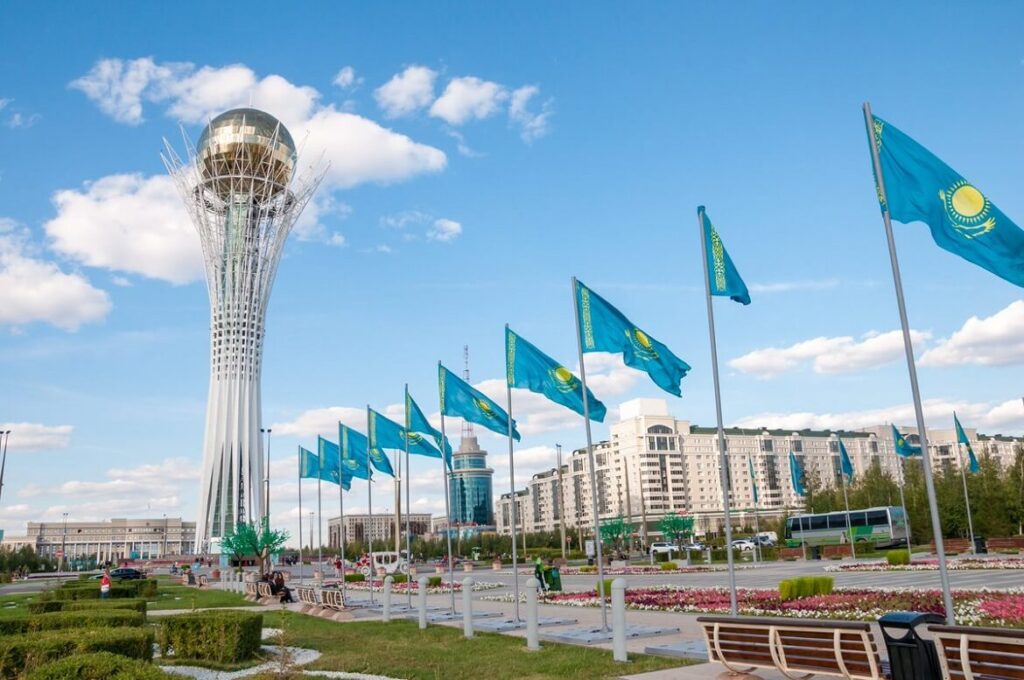As the world observes UN World Peace Day on 21 September, it is disheartening to see global conflicts escalating at an alarming rate.

Numerous pressing issues await discussion by world leaders at the upcoming UN General Assembly on 22–23 September. The war between Russia and Ukraine has been ongoing for over two years, with no end in sight. Additionally, there are growing fears that the long-standing Israeli-Palestinian conflict could expand, drawing in Lebanon and potentially Iran, which would likely involve the United States and its allies as well. The multipolar global order has created an environment of intensified confrontation between major powers, as geopolitical rivalries fuel violence and destabilize entire regions.
Amid this turmoil, the irony is that global leaders will gather at the UN, an institution founded on the principles of peace and dialogue, while the world edges closer to deeper divisions. To avoid spiraling into further conflict, countries should consider a different model of engagement—one based not on bloc alignment or confrontation, but on balanced diplomacy.
Kazakhstan offers an interesting case study in this regard. Its balanced and consistently peaceful foreign policy, also described as multi-vector, has enabled the country to maintain domestic and regional stability. This stability is underpinned by Kazakhstan’s commitment to unity and ethnic accord, reflected in its domestic policies and its initiative of the Congress of Leaders of World and Traditional Religions, held every three years in Astana, which promotes interfaith dialogue and peace. Neighboring Russia to the north and China to the east, Kazakhstan’s foreign policy provides important lessons for how smaller and middle powers can navigate the increasingly multipolar global order, where rigid alliances are becoming less sustainable.
A Balancing Act in a Multipolar World
Kazakhstan’s balanced foreign policy—developed in the early 1990s after it gained independence from the Soviet Union—has allowed the country to build relationships with a diverse range of global actors, including Russia, China, the United States, and the European Union. For instance, Kazakhstan is part of the Eurasian Economic Union, which includes Russia. At the same time, the Central Asian country has been developing relations with the EU through the Enhanced Partnership and Cooperation Agreement (EPCA), signed in 2015. Rather than aligning itself strictly with one bloc, Kazakhstan has pursued cooperative ties across geopolitical divides, ensuring that no single power dominates its foreign policy agenda.
This approach has been instrumental in preventing Kazakhstan from becoming a pawn in great-power rivalries. The presence of powerful neighbors could have easily drawn the country into conflicts or competition. However, by maintaining strong relations with both Moscow and Beijing while simultaneously fostering ties with Western nations, Kazakhstan has successfully avoided entanglement in major power confrontations. Instead, Kazakhstan facilitates trade between China and Europe along both the Belt and Road Initiative route and the Trans-Caspian International Transport Route. Kazakhstan’s balanced foreign policy and its ability to navigate complex international dynamics were key reasons the country was trusted to sit on the UN Security Council as a non-permanent member in 2017-2018, the first country from Central Asia to hold this position.
For middle powers like Kazakhstan, this type of flexible diplomacy could be a tool in avoiding the pitfalls of bloc mentality. As global competition between the US, China, and Russia intensifies, the temptation for many countries will be to align themselves with one side. However, these risks trap these nations in a zero-sum game, where the interests of major powers overshadow their own national priorities. Kazakhstan’s example shows that by keeping diplomatic channels open with multiple actors, countries can retain more autonomy and resist being drawn into conflicts that do not serve their own interests.
Contributing to Regional Stability
Beyond its balancing act, Kazakhstan has facilitated regional peace and security, highlighting the potential for middle powers to play a constructive role in international diplomacy. Kazakhstan has provided a platform for negotiations in regional and international conflicts, leveraging its neutral stance.
One notable example is the Astana peace talks on Syria, where Kazakhstan since 2017 hosted negotiations between the Syrian government, opposition groups, and international stakeholders such as Russia, Iran and Türkiye. While the internal conflict in Syria is not fully resolved, Kazakhstan’s neutral stance enabled it to act as a host for these talks. More recently, in May 2024, Kazakhstan offered a platform for negotiations between Armenia and Azerbaijan. The talks aimed to ease tensions and promote peace between the two nations, which have been embroiled in a long-standing conflict. Earlier this month, Azerbaijan accepted Kazakhstan’s proposal to hold further talks between Baku and Yerevan on a peace treaty in Astana.
Additionally, Kazakhstan had previously proposed to provide a platform for negotiations between Russia and Ukraine, should the two sides agree to this. Kazakh President Kassym-Jomart Tokayev recently commented that the possibility of achieving peace in Ukraine still exists. “It is necessary to carefully consider all peace initiatives from various countries and reach a decision to stop the hostilities, and then proceed to discussing territorial issues. In our view, the peace plan proposed by China and Brazil deserves support,” he stated during his meeting in Astana with German Chancellor Olaf Scholz.
Kazakhstan has also been a vocal advocate for nuclear disarmament. After closing the Semipalatinsk nuclear test site in 1991 and renouncing the world’s fourth-largest nuclear arsenal, Kazakhstan has championed the cause of non-proliferation on the global stage. The country played a key role in establishing the International Day Against Nuclear Tests, observed annually on 29 August. Given the increasing confrontation between the United States and Russia, two major global nuclear powers, it is imperative for middle powers to collaborate in reducing the global threat posed by these weapons. While major powers are unlikely to pursue denuclearization in the near future, smaller nations can play a significant role in influencing global security norms and preventing nuclear conflict.
Additionally, Kazakhstan has promoted regional security through initiatives such as the Conference on Interaction and Confidence-Building Measures in Asia (CICA), a platform aimed at enhancing peace and cooperation in Asia. The country has also chaired major international organizations this year, including the Shanghai Cooperation Organisation (SCO), which has political rivals such as India and Pakistan among its members. Yet, due to positive relations with all sides, Kazakhstan has further demonstrated its ability to navigate diverse geopolitical interests by facilitating the signing of several documents among all SCO member states.
Overall Benefits of Neutrality
While Kazakhstan’s non-aligned approach has largely been successful, it is not without its challenges. Remaining neutral in the face of intensifying global conflicts can be difficult, especially when the pressures from major powers are strong. Kazakhstan’s proximity to Russia, for example, presents a particular challenge, as Moscow continues to exert influence over the region. Additionally, China’s economic dominance makes it attractive for Central Asian nations to strengthen their ties with this influential neighbor.
Yet, the benefits of this approach are clear. Kazakhstan’s foreign policy has allowed it to play a constructive role in regional peace and security efforts, while avoiding becoming entangled in the geopolitical ambitions of its neighbors.
It is, of course, unlikely that major powers such as the United States, China, or Russia will adopt a neutral foreign policy. Their geopolitical ambitions and strategic interests lead to great power rivalry, making competition with other states more appealing as they pursue their global agendas. However, for smaller nations and middle powers, adopting a strategy of multi-vector diplomacy, as exemplified by Kazakhstan, could serve as a viable alternative to the risks associated with rigid alliances.
By remaining open to cooperation with multiple actors, smaller nations can protect their autonomy, contribute to regional stability, and act as mediators in global conflicts. If more countries follow this path, they could help build a more stable international order.
Author: Professor Michael Rossi – Lecturer in Political Science at Rutgers University of New Jersey (United States) and a Visiting Professor at Webster University.
(The opinions expressed in this article are solely those of the author and do not necessarily reflect the views of World Geostrategic Insights).







